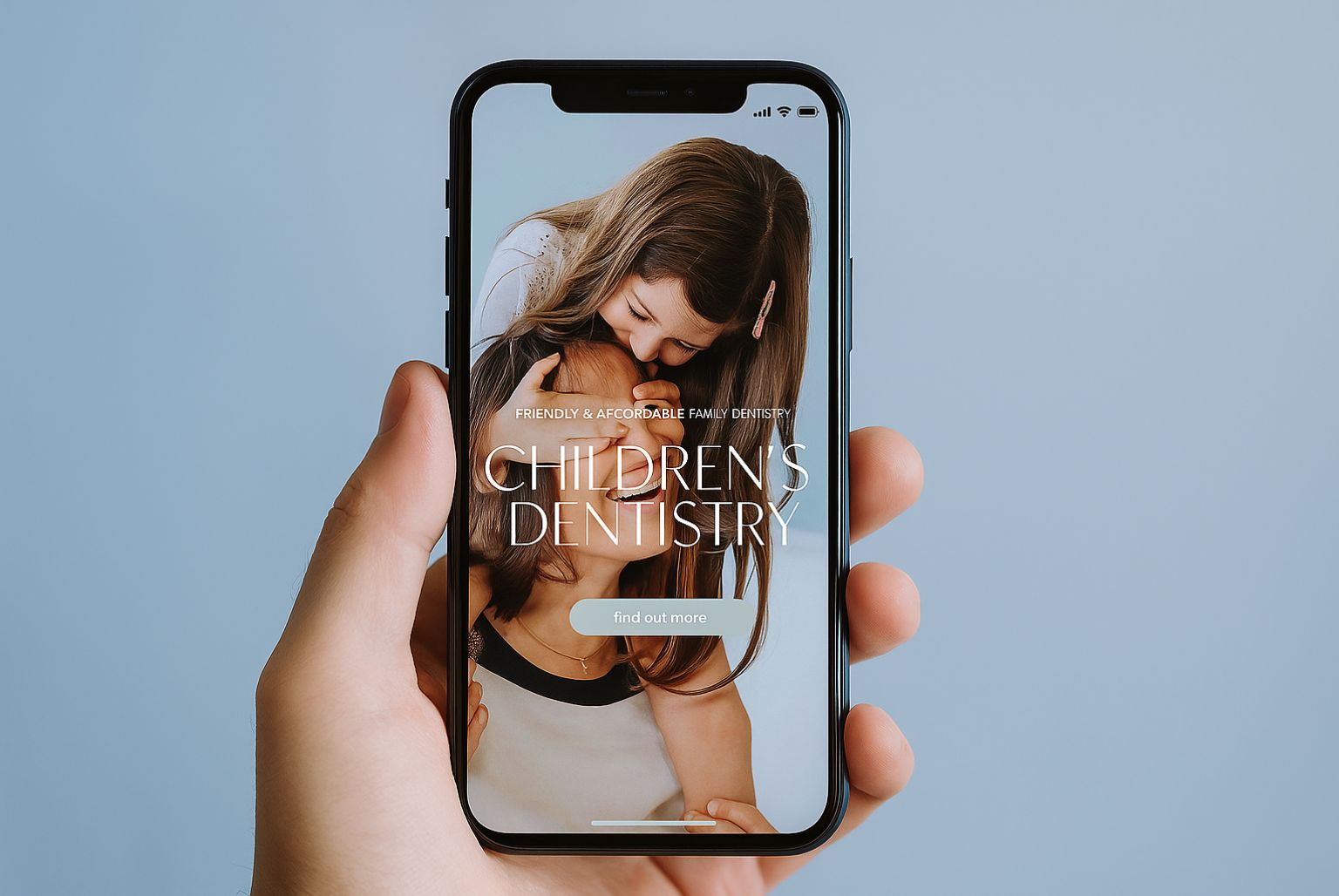Even the most beautifully designed website needs a strong content marketing and search engine optimisation (SEO) strategy to be found in Google searches. These are the tools that tell potential clients that your website exists and inspire them to pick up the phone or fill out an online form to book an appointment.
These days, a single word can – in our opinion – sum up the key to creating content that boosts rankings and enquiries, and that word is TRUST.
Why ‘trust’ matters
You already understand how important trust is to your potential clients. When you’re responsible for changing someone’s appearance, whether by using dermal fillers or whitening teeth, people want to know that you’re someone they can trust to enhance, rather than damage, how they look.
They care about your wealth of knowledge, your experience, your training and the good opinion of other people who have come to you for treatments.
And trust extends online too.
Gone are the days when Google would rank a web page high on page one of a search based on keyword density. The shallow content of 300-word blog articles is unlikely to cut it now too. Google is most concerned with providing high quality, unique and relevant content from a website that preferably has a strong online reputation, i.e. domain authority.
In other words, Google wants to know that it can trust you before it features your business prominently in organic (i.e. non-paid for) listings.
When we think about it, Google is a business – its primary concern is to return search engine results pages (SERPs) to its customers that are as relevant and helpful to answering their enquiry as possible. This is how it best serves its audience.
Google uses over 200 signals to look at every possible web page it might list in response to a search and then rank them according to which page is most likely to give the searcher the best experience.
Therefore, the way to create content that will boost your rankings and enquiries is to use as many of these positive signals as you can to demonstrate that you make a trustworthy source.
Google ranking signals that can help you build your online reputation
The Backlinko article we’ve linked to above (here’s the link again) is a great starting point for understanding the signals that Google potentially uses to rank pages in SERPs. If you have a spare moment to skim through, it will give you a good overview.
It’s helpful to consider the following:
- Google looks at how long people spend on your website on average – this is called ‘dwell time’. The longer the dwell time, the more likely it is that you’re providing engaging content that is keeping visitors on your site. Therefore, one of your aims should be to create content that keeps people reading.
Treatment pages that answer frequently asked questions or that feature pricing information address common searches. Longer blog articles like this one provide valuable information but also boost a website’s dwell time – in fact, a 2016 study by Backlinko found that the average Google first page search result contains 1,890 words.
- Google will look at your website’s bounce rate too. This is the percentage of people who leave your site from the page they land on without looking at any other content. If you have a high bounce rate, it can be a signal that the content isn’t relevant to searchers. Your aim should be to make landing pages as clear and engaging as possible with a clear call to action that takes people further into your website.
- Google will also look for signals such as a main heading (with H1 heading tag) that shows clearly what the topic of the page is about.
- It will look for words in the copy, in the headings and subheadings, and in the tags behind your images that show that the content is relevant to the search it was listed for. This includes words and phrases that mean the same as the main topic for the page.
- It’s also worth remembering that Google penalises the rankings of websites that feature duplicate content, especially articles copied from another source. Trust and domain/page authority can be built up with content that’s unique to your site.
- It’s likely that Google rewards web pages that provide helpful supplementary content, such as a Skin Assessment, to give clients more value, as well as pages that correctly cite and link to their factual sources so that readers can verify information.
These are just a few tips that should help to boost your rankings and, subsequently, your volume of enquiries.
Content that builds trust
As we’ve touched on above, it isn’t just Google that cares about trust. People care too.
Your potential clients are likely to look at several different clinics or practices before they decide to book an initial appointment. The content you create and publish on both your website and social media will be seen as a reflection of your attitude to your clients.
If you offer them content that resonates with their needs and aspirations – for example, information or advice about treatments – based on your professional knowledge, this will show your potential clients that you know your stuff but, most importantly, that you understand them and care about giving them value, even before they’ve paid to see you.
Our advice when thinking about content is to be authentic, honest and ethical. These values are at the core of building trust.
It’s also important to recognise that trust doesn’t happen overnight. Creating content that boosts your rankings and enquiries is something you will need to do consistently over time. Realistically, the work you do today could take three to six months before the benefits are clear.
Still, there’s something to be said for the long game. Because trust takes time to build, clients are more likely to stay emotionally invested and remain loyal to your brand once you have proven your worth.
To get you started, here’s some questions you might want to consider:
Who are your clients?
The first question for any business to answer is, “Who are our ideal clients?” or “Who do we serve?”
When you think about your clients, it’s likely that the ones you love working with and who rave about your treatments share some common traits. It might be that you have a particular specialism that answers their needs. They might be at the same stage in life, e.g. a 30-something mum who wants to tone up the loose skin on her stomach after having a baby, or they might come from a similar background or share the same interests.
Maybe there’s something that people always say to you when they come in for a consultation or a common fear they express. It’s this common ground that will fuel your content and make it relevant.
If you can pinpoint what inspires your target clients, then you can begin creating content that speaks directly to them.
What are your clients searching for?
This is an essential question. Ultimately, your aim should be to understand what your clients are searching for online and be the clinic that answers their questions.
There are several starting points to help you identify the questions people commonly have, beyond what you hear in the consulting room.
A handy trick is to go into Google and type in a keyword that you think your clients are likely to use to find your clinic. This might be a treatment or service you offer. Google has an auto suggest feature which, as you type, will bring up a list of common searches using the chosen keyword.
Below, you can see an example of what comes up when you search for ‘dermal fillers’.
To ensure that Google isn’t influenced by your previous search history, it’s an idea to use your brower’s ‘Incognito’ search facility so you can see what someone making the search for the first time might see.
Just this quick exercise tells us that, when it comes to dermal fillers, people want information about treatment prices, cheek fillers and potential side effects – these could all make good topics for blog articles or information on your treatment pages.
Here’s another example of results using Google’s auto suggest feature:
All we needed to type was ‘Is teeth…’ to come up with a list of fantastic questions that people commonly ask, many of which could easily be turned into fresh content on your website.
You can begin building trust by answering these questions in a way that draws on your professional experience. For example, you could write an article about teeth whitening and why it’s safer and more effective to have treatment through a dentist than to order whitening products online.
Another option is to log into the free Google Keyword Planner tool and enter your primary keyword into the field that says, “Search for new keywords using a phrase, website or category”. Click “Get ideas” and see what keywords and phrases Google gives you in return. You may find some inspiration for your next blog topic.
How can or do we add value?
At the heart of trustworthy online content, there’s a desire to give clients something of value. Sometimes the most effective way to secure a new enquiry is to give information without the expectation of receiving anything in return.
If you can provide high quality, relevant and accurate content, people will see that you genuinely care about their experience.
If you do something that already adds value for your clients, your website and social media is a great place to tell people about it so they can see what sets you apart from your competitors.
Refreshing old content
As well as adding new content to your website – a positive signal to Google that your site is regularly maintained – we’d also recommend looking back at your old content and reviewing whether it could be updated and refreshed in any way.
For example, if you have an old blog article that ties in well with something you’ve written more recently, you can add a link to the fresh content or refer back to the old article in your new blog. This is a statement to Google and your website visitors that you care about adding depth and context to your content.
Perhaps you have a popular article that could do with updating to include the latest advice or techniques? Just a few minutes spent updating it could help to increase its prominence in SERPs.
Put the user experience first
Placing trust centre stage is a sure fire way to improve the user experience when visiting your website. Make this your priority and Google should reward you with an upturn in rankings and enquiries.
Our advice is strive to be the ‘go to’ source of information and advice for the treatments you offer and your marketing efforts will pay dividends.




